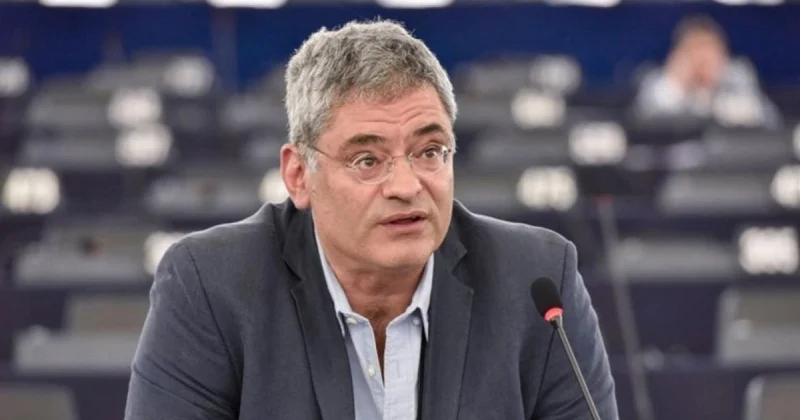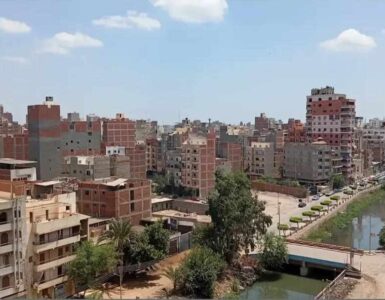Why do we have European elections? Who has the right to vote?
Once every 5 years the citizens of the 27 states of the Union are invited to elect those who will defend their interests in the parliament of 720 members. This legislative body represents the 450million citizens and co-shapes European policies.
Which are the institutions of the European Union and what does each one do? What do we citizens decide for by voting?
The Institutions are three and they are easy to remember. The Commission, the Parliament, the Council.
· The Commission, with Commissioners appointed, one from each state, with specific tasks (eg economy, agriculture, energy, etc.) “runs” the daily life of the EU, controls the implementation of laws and proposes new ones for voting.
· The Parliament includes our directly elected representatives, the citizens of the EU, and co-decides by approving or rejecting proposed laws.
· The Council is made up of the Prime Ministers or Presidents of the 27 member states, it also co-decides on the proposed laws and sets general political directions and priorities.
In Greece, do we know the European institutions? If not, do you think we need to be informed and why?
We know almost nothing because the vast majority simply believe that the EU is a necessary evil to get money. The superficial information, even before the European elections, is useful because it can act as a motivation for some to look further into these issues, but usually it is just an alibi for the silence of five years. But the worst thing is not the abysmal ignorance of the citizens but the complete and without exceptions the inability of the parties to draw up a policy with a European axis.
Are the European elections also related to “European values”, which we hear from time to time? Which are they; Do they have impact on our lives?
The Treaty on the European Union records its basic principles, and it is a very good opportunity to remember them:
• Dignity
• Freedom
• Democracy
• Equality
• Rule of law
• Human Rights
I will overcome the question of whether they concern us by submitting another one: Do we believe that these basic principles also concern our neighbor? Why do we, as the center of creation (as mom says) demand everything but how much of it do we delegate to someone else?
What is the difference between MEP and MP?
Both have the absolute, personal responsibility of their words and votes, and their work is the production of laws. The most essential difference is that the European Parliament is not dominated by a political group, let’s say a party, so in order for any bill to pass, it is necessary to find coincidences and collaborate. This imposes a more mature behavior on the MEPs and thus we usually see a lack of extremes and toxic discourses, at least from the parties that want to have some intervention in the content of the laws and not just the very convenient activity of sterile complaints
What are the duties and role of the MEP?
They are informed about the legislative work in progress, they participate either as a rapporteur or with amendments in the formation of laws, they work to achieve a majority around a legislation if they agree with it by working with MPs of other parties. They are in constant search of the “national point of view” as our country very rarely supports its MEPs, they constantly meet representatives of pressure groups to be informed about sides that are probably invisible (and not to be heavily financed as the conspiracy theorists imagine) and fights the battles to its committees in order to complete the voting process in the best possible way.
In addition to the legislative work, they control the European Commission for actions or omissions, participate in the political discussions of the political groups or in the resolutions adopted by the parliament on current issues and of course inform the European citizens at every opportunity about issues that concern them.
There are many other important activities that would like space and discussion so let’s stick to the basics.
Can anyone become an MEP or would it be better to have some special skills and qualifications?
The question is so general that I will dare to answer: “They just need to know how to read and write.” A brilliant technocrat with many degrees and senior service but zero political judgment can be just as useless as a politician who has never worked a day in their life but being a member of a political party.
What are their daily activities?
Meetings, meetings, meetings from morning to night in Brussels and Strasbourg. Two legislative committees with frequent meetings, some sub-committees, proposals, reviewing others’ proposals, political group meetings to design policy or discuss news from each member state, brainstorm ideas, contact the media to push in a direction or inform about what’s going on, meeting with lobbyists, long-hour votes, collaborations with commissioners, meetings with the European institutions officially or unofficially, organizing events in the areas of the EC or outside it etc etc. A full-time and intensive employment program, with a very good salary and mainly with a lot of interest and demands according to the dignity of each.
What did you gain from your experience as an MEP? Have there been difficult times in your turn?
During my turn I had the crisis of 2015 with the referendum and the short-term exit of our country from the EU as well as the like a storm entry of more than one million refugees from the main sea borders which led to dramatic conditions in the reception and living centers . Yes, the hard times were many and the dead end was always fast approaching. Fortunately, the EU has proven that in critical moments it can and does react effectively and correctly. But there is no need to get to last minute and when the crisis is over to put the problems under the carpet again, as we are doing now by preparing new dramas.
It was an experience that on the one hand equipped me with realistic optimism, that everything is possible and in our hands, and on the other with the pessimistic certainty that we will kick every opportunity for radical changes for the greater good, moving from temporary political gain.
Why are they trying to become MEPs people who are against the EU?
Because their presence there is a good way to undermine it from the inside and make their voice heard louder. As I mentioned above some are not interested in the realistic work of co-designing legislation but in sterile denial and denunciation. As long as there are citizens who send them to the European Parliament, they do the worst they can for the Union, for the other political forces and for
those who believe in a strong union of citizens in a world dominated by old and new superpowers.
We hear that in the next European parliament the extreme right will have increased power. What will this mean for Europe?
Less coordination, more vertical divisions and therefore less possibilities to protect or support citizens, more voices and extremes. But let’s not underestimate the democratic forces in the parliament and its assimilative power. Many joined as extremists and became Europeanists
Why do we see signs with the title “…with the co-financing of the European Union” in many places where projects are being carried out? Does the EU help Greece and if so in which areas?
Because none of the big and small projects in our country would be done without European participation. But the interesting thing is that while incredible billions have flowed into Greece since the 80s, everyone still admits that we do not have a functional production model, we hardly produce anything competitive and that our essential resources are tourism and real estate, plots and that is, the houses. So the question is not whether and how much money they give us, but why we cannot use it productively as many other European countries do.
So, who rules Greece? The Government or the EU?
Although every government shouts at some point about the “Brussels bureaucracy” this is very much an alibi. No one is to blame but the timeless choices of our governments for the mess in Health, the drama in Education, the discrediting of agriculture, the export of the productive export potential, the inability to attract investments, the non-existence of Justice due to the time of its awarding. Nor that we are last in internet speeds, penultimate in purchasing power, last in every productive index. Brussels funded rail safety but the clientelism of successive governments left projects unfinished resulting in the death of our fellow citizens as soon as a human error occurred. Likewise, the dispersion of responsibilities leaves the forests unprotected and the plains vulnerable to rainfall. The Union gives money and tools, the clientelism of our governments is holding back our promising perspective.
And when “Brussels” came to govern us during the years of the memorandums, they revealed to us what we already knew: In front of the fear of Management and Clientelism, the technocrats became kittens, they were only interested in ensuring the return of their loans and did not care about the outcome or the necessary reforms that announced on paper. Because the EU is not our mother, we have the responsibility of our country!
Miltos Kyrkos is a Greek politician. He was born in Athens and is the son of Leonidas Kyrkos. He studied chemical engineering in Romania, was a partner of the Muslim Children’s Education Program for learning Greek and worked in a board game import and production business. He was a scientific advisor to the MEP Spyros Danellis. In 2014 he was elected MEP.
In the 2014 European elections, he was elected MEP with the party “To Potami”. During his turn he was a member of the Political Group of the Progressive Alliance of Socialists and Democrats in the European Parliament, while he was vice-president of the Delegation in the EU-Turkey Joint Parliamentary Committee. He participated in the Committee on Transport and Tourism (as a member) and the Committee on Civil Liberties, Justice and Home Affairs (as a substitute).









Add comment